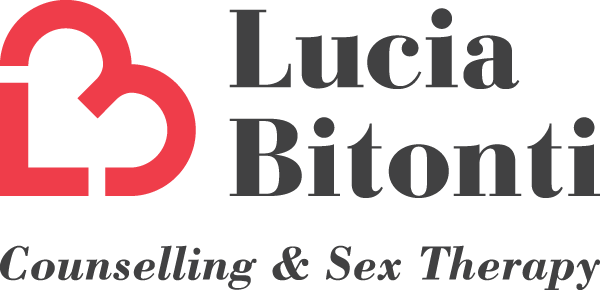In the realm of human connections, vulnerability is the bedrock upon which intimacy and trust are built. It’s the courage to be our authentic selves, to share our deepest thoughts and feelings, despite the fear of judgment or rejection. However, embracing vulnerability, especially in relationships, can be daunting. It’s a leap of faith, requiring strength and resilience. At Lucia Bitonti, we understand that embracing vulnerability within relationships can be akin to navigating a labyrinth blindfolded. It’s a journey fraught with uncertainty, yet it’s essential for fostering deeper connections and achieving personal growth. This article delves into strategies for overcoming the fear of vulnerability, ensuring your relationships flourish.
Key Takeaways
- Understanding Vulnerability: Recognise that vulnerability is a strength, not a weakness.
- Communication is Key: Foster open and honest communication with your partner.
- Self-Compassion: Be kind to yourself; embracing vulnerability is a process.
- Seek Support: Don’t hesitate to seek professional guidance when needed.
- Practice Makes Perfect: Embrace small acts of vulnerability to build confidence.
Overcoming The Hurdles
The path to embracing vulnerability is unique for everyone, but there are universal steps that can ease the journey:
- Acknowledge Your Fears: Identifying what scares you about being vulnerable is the first step towards overcoming it. Whether it’s fear of rejection or fear of losing control, understanding these fears is crucial.
- Communicate Openly: Engage in open and honest dialogues with your partner. This guide on effective communication can be a great starting point.
- Self-compassion: Be gentle with yourself. Remember, it’s okay to be a work in progress.
- Build Trust Gradually: Trust is foundational in allowing vulnerability. Start with small disclosures and build up as self-confidence grows. At Lucia Bitonti, we recognise the importance of nurturing self-confidence alongside vulnerability.
- Professional Support: Sometimes, professional guidance is invaluable. Therapists can provide strategies and support tailored to your needs.
Integrating Vulnerability into Your Life
Incorporating vulnerability into your relationships doesn’t happen overnight. It’s a gradual process that deepens connections over time. Here are practical steps to start:
- Daily Check-ins: Spend time each day to share your feelings and experiences with your partner.
- Set Boundaries: Understand and communicate your limits. Boundaries are essential for healthy vulnerability.
- Embrace Imperfection: Accept that vulnerability involves risk and that not every attempt will be perfect or well-received.
- Celebrate Small Wins: Acknowledge and celebrate moments when you or your partner successfully share vulnerability.
The Transformative Power of Vulnerability
Vulnerability is not just about sharing the parts of ourselves we feel comfortable revealing; it’s about the courage to expose those parts we’d rather keep hidden. This act of bravery can transform relationships in profound ways, fostering a depth of connection that superficial interactions simply cannot achieve. In the context of solving a relationship problem, vulnerability becomes an even more critical tool. It allows partners to move beyond surface-level issues and address the underlying emotions and needs that often fuel conflicts and misunderstandings.
Breaking Down Walls
Many of us build walls around our hearts to protect ourselves from potential hurt. While these barriers may offer temporary solace, they also prevent us from experiencing the full spectrum of human connection. Vulnerability acts as a sledgehammer to these walls, allowing us to dismantle them brick by brick. It’s a process that requires patience and perseverance, but the result is a more open, authentic relationship where both partners feel seen and understood.
Cultivating Empathy and Understanding
When we allow ourselves to be vulnerable, we not only open our own hearts but also invite our partners to do the same. This mutual vulnerability breeds empathy and understanding, as both individuals get a glimpse into each other’s inner worlds. It’s a powerful reminder that we’re all human, navigating our struggles and striving for connection.
The Role of Trust
Trust and vulnerability are inextricably linked. To be vulnerable, we must trust our partner not to use our disclosures against us. Similarly, our acts of vulnerability can strengthen our partner’s trust in us, creating a virtuous cycle. Building this trust doesn’t happen overnight. It’s the result of consistent, honest communication and the willingness to show up for each other, even when it’s challenging.
Navigating Vulnerability Together
For vulnerability to strengthen a relationship, it must be a two-way street. Both partners need to feel safe enough to share their true selves. This requires creating a supportive environment where vulnerability is met with empathy and kindness, rather than judgment or criticism. It’s also important to recognise that everyone has different comfort levels when it comes to opening up. Patience and understanding are key as each person navigates their own journey towards vulnerability.
The Journey of Embracing Vulnerability
- Self-Reflection: The journey begins with introspection. Understanding your own barriers to vulnerability be it past hurts, fear of rejection, or self-judgment is crucial. This self-awareness creates a foundation for growth and change.
- Educate Yourself: Knowledge is power. Familiarise yourself with the benefits of vulnerability in relationships. Resources like Brené Brown’s research on vulnerability can offer profound insights and encouragement.
- Gradual Exposure: Like any form of exposure therapy, gradually increasing your openness can help build your tolerance to the discomfort that comes with vulnerability. Start with less risky disclosures and work your way up as you build confidence and trust in your relationship.
- Mutual Vulnerability: Vulnerability begets vulnerability. Encourage open dialogues with your partner where both of you can share freely. This mutual exchange fosters a deeper connection and understanding.
- Celebrate Vulnerability: Recognise and celebrate moments of vulnerability, both in yourself and your partner. Acknowledging these moments reinforces their value and the strength it takes to be vulnerable.
The Challenges and Rewards
- Facing The Challenges: It’s important to acknowledge that vulnerability doesn’t always lead to positive outcomes. There will be times when your openness isn’t met with the response you hoped for. In these moments, resilience becomes key. Remember, the goal of vulnerability is not universal acceptance but authentic connection. Some relationships will deepen through vulnerability, while others may reveal themselves to be incompatible with your needs and values.
- Reaping the Rewards: The rewards of vulnerability, however, far outweigh the risks. Vulnerability can lead to stronger, more resilient relationships built on a foundation of trust and authenticity. It can break down walls, heal old wounds, and open the door to a level of intimacy and connection you may have thought impossible.
Navigating Vulnerability with Lucia Bitonti
At Lucia Bitonti, we are dedicated to supporting you through the complexities of vulnerability in relationships. Our approach is tailored to meet you where you are, offering strategies and support to navigate this challenging yet rewarding terrain. Whether through individual counselling or couples therapy, we provide a safe space to explore vulnerability, build resilience, and foster deeper connections.
- Personalised Support: Every individual’s relationship with vulnerability is unique. Our personalised support is designed to address your specific fears, challenges, and goals, providing you with the tools and confidence to embrace vulnerability in a way that enriches your relationships.
- Couples Therapy: For couples looking to deepen their connection through vulnerability, our therapy sessions offer a space to explore and understand each other’s experiences, fears, and desires. Guided by experienced professionals, couples can learn to navigate vulnerability together, strengthening their bond.
- Workshops and Resources: In addition to one-on-one support, Lucia Bitonti offers workshops and resources designed to educate and empower individuals and couples on their journey towards embracing vulnerability. From practical exercises to insightful discussions, these resources are an invaluable tool for anyone looking to deepen their understanding and practice of vulnerability.
Moving Forward
Embracing vulnerability is a courageous act one that can transform your relationships in profound ways. It requires patience, resilience, and the right support, but the rewards are immeasurable. A deeper connection with others, a more authentic sense of self, and a life enriched by genuine, heartfelt interactions are just a few of the treasures that await on the other side of fear. At Lucia Bitonti, we are here to support you on this journey through our dedicated counselling services. With a compassionate approach and a wealth of resources, our counselling can help you navigate the challenges of vulnerability, celebrate your successes, and move forward with confidence and courage.
Conclusion
Embracing vulnerability is a courageous step towards building deeper, more meaningful relationships. It’s a journey marked by self-discovery, growth, and the strengthening of bonds. At Lucia Bitonti, we understand the importance of this journey and are committed to supporting you every step of the way through our professional blog. Whether you’re seeking to overcome fears, build trust, or simply deepen your connections, our expert guidance can light the way. Reach out to us to explore how we can assist you in transforming vulnerability from a source of fear to a foundation of strength. Remember, the path to vulnerability is a journey, not a destination. Each step, no matter how small, is a leap towards a more fulfilling connection.
Frequently Asked Question
Q1: What does it mean to be vulnerable in a relationship?
Being vulnerable means sharing your true self, including your thoughts, feelings, and fears, with your partner, without fear of judgment.
Q2: Why is vulnerability important in relationships?
Vulnerability fosters intimacy, trust, and stronger emotional connections, forming the foundation of healthy relationships.
Q3: How can I start being more vulnerable with my partner?
Begin with small steps, like sharing your feelings about your day, and gradually move to more significant disclosures as you feel more comfortable.
Q4: What if my partner doesn’t respond well to my vulnerability?
Communication is key. Discuss your needs and concerns openly. If challenges persist, consider seeking professional guidance together.
Q5: Can vulnerability make a relationship weaker?
On the contrary, vulnerability strengthens relationships by building trust and intimacy. It’s about showing up as your authentic self.
Q6: How can I overcome the fear of being vulnerable?
Start with understanding your fears, practice self-compassion, communicate openly, and consider seeking support from a professional if needed.


